Ruth Downie - Tabula Rasa
Здесь есть возможность читать онлайн «Ruth Downie - Tabula Rasa» весь текст электронной книги совершенно бесплатно (целиком полную версию без сокращений). В некоторых случаях можно слушать аудио, скачать через торрент в формате fb2 и присутствует краткое содержание. Год выпуска: 2014, ISBN: 2014, Издательство: Bloomsbury USA, Жанр: Исторический детектив, на английском языке. Описание произведения, (предисловие) а так же отзывы посетителей доступны на портале библиотеки ЛибКат.
- Название:Tabula Rasa
- Автор:
- Издательство:Bloomsbury USA
- Жанр:
- Год:2014
- ISBN:9781620403235
- Рейтинг книги:5 / 5. Голосов: 1
-
Избранное:Добавить в избранное
- Отзывы:
-
Ваша оценка:
- 100
- 1
- 2
- 3
- 4
- 5
Tabula Rasa: краткое содержание, описание и аннотация
Предлагаем к чтению аннотацию, описание, краткое содержание или предисловие (зависит от того, что написал сам автор книги «Tabula Rasa»). Если вы не нашли необходимую информацию о книге — напишите в комментариях, мы постараемся отыскать её.
Tabula Rasa — читать онлайн бесплатно полную книгу (весь текст) целиком
Ниже представлен текст книги, разбитый по страницам. Система сохранения места последней прочитанной страницы, позволяет с удобством читать онлайн бесплатно книгу «Tabula Rasa», без необходимости каждый раз заново искать на чём Вы остановились. Поставьте закладку, и сможете в любой момент перейти на страницу, на которой закончили чтение.
Интервал:
Закладка:
Chapter 75
Just a small affair, Tilla had said. Just the family and a few friends. The roar that went up as he arrived made him wonder if he had come to the wrong place. Perhaps there was a cockfight going on in there somewhere. Branan gave him a push and whispered, “Go on!”
The air inside the house was vibrant with cheering and heavy with the smell of smoke and wet wool and beer and pork crackling. There were people sitting on skins around the hearth with their knees jammed into other people’s backs, and human shapes filled all the space back into the darkness behind the wicker screens.
Ruso was led forward to sit next to Tilla on the bench with the tickly fur, which had been moved nearer to Senecio’s chair. Tilla was pink-faced with the heat and unusually demure in a pale green dress he was fairly sure he hadn’t seen before. Her hair was swept up into some sort of complicated knot and adorned with what he at first thought were large spiders but turned out to be flowers. Maybe the poppy was still affecting him.
“Mostly family,” she whispered, in answer to his question. “Just a few neighbors.”
Ruso gazed round at the unfamiliar faces and foresaw a lot of You must remember them: You met them at our wedding conversations.
“The friends are yours,” she added.
Someone handed him a brimming cup of beer and said, “Pass it on.” As his eyes adjusted to the poor light he could make out Aemilia and her husband. Conn and the other people from the farm. Virana sitting awkwardly next to Ria. Enica by the door, where she could see if Branan tried to leave. He thought he recognized the baker from outside the fort, and then, over by the wall, behind all these natives, he found himself looking at Accius and Daminius with Gallus from the hospital, standing upright in full parade kit and looking deeply uncomfortable. Daminius in particular looked as though he would rather be almost anywhere else. Ruso assumed Tilla had invited him by way of apology for whatever had happened last night, but it might have been kinder to leave him alone. Fabius, he supposed, was too ill to leave the fort.
Senecio heaved himself to his feet almost unnoticed and said, “Friends!” This brought on a chorus of “Shh!” and “Stop shushing, we can’t hear!”
“Friends,” he said, indicating the bride, “this is my precious daughter, Darlughdacha, whom the gods have sent home to me at last. She is even more beautiful and brave than her mother, so already we have enjoyed several arguments.” He paused to let the laughter die away. “This is Gaius Petreius Ruso, a man of great courage who brought our son back to us. His people and his farm are far across the sea in the south of Gaul. We welcome him into our family.”
There was movement over by the door, with more people crowding in and a loud whisper in Latin: “Sorry we’re late. You know how long women take to get ready.”
Ruso, spying a true friend, stood and beckoned Valens over. Serena, stouter than Ruso remembered, picked her way between the seated guests with obvious distaste. She accepted a beer cup from a grinning native with buckteeth and wild hair and passed it straight on. Ruso wondered if he should thank her for the money.
The next part was as long and tedious as only a Briton-or a politician-could have made it. As Senecio sang the history of Tilla’s people from the time they had descended from the gods, Ruso found himself watching the progress of the beer and willing it to come round again. Even Serena relented and took a sip before passing it on. While the locals cheered at the mention of each familiar character, he felt himself starting to nod off.
He was woken by a painful elbow in the ribs. “It is your turn!” Tilla hissed.
“What?”
“Thank him for the beautiful verse about us and tell the story of your people and how we met.”
Everyone was looking at him. “Me?” he whispered. “Why didn’t you warn me?”
“I did! You said yes!”
It was Tilla who spoke up. “His people do not sing their story,” she explained. “They write things down instead.”
“Perhaps he will read it to us,” suggested Senecio.
Bride and groom exchanged glances. She said, “He has not brought the writing with him.”
There was a faint murmur of disapproval.
“That is the problem with writing.” The old man shook his head, apparently in pity for the simpletons who had to rely upon the work of pens and styluses. “It has to be carried, and is very easily left behind.”
Ruso cast around frantically for something suitable to say. Surely there was some poem that mentioned Britannia without saying how remote it was and how brave the emperor was to go there?
And then he remembered. Of course: Tell the story of your people. He eased himself to his feet, glad his jaw had almost stopped aching. “ ‘I sing,’ ” he declared, although he was not singing at all, “ ‘of arms, and of the man fated to be an exile . . .’ ”
The first few lines of the Aeneid were schoolboy stuff, but by the time he reached the part about the famously pious man driven to suffering, he was already beginning to falter. With some prompting from Valens, he got as far as bemoaning the heaviness of the cost of founding the Roman race before he ground to a halt. Then he remembered he was supposed to be adding a verse about Tilla, and could not think how to start again.
“ ‘The Trojans were barely out of sight of Sicily,’ ” continued a voice beside him, “ ‘in deeper water, merrily spreading sail . . .’ ”
Albanus, the son of a teacher. Albanus, the loyal friend who with luck would know enough of the poem to give him time to think of something to say about his wife.
Albanus was enjoying himself now. The Trojans’ merriment had been swept away and they were in the middle of a shipwreck. The Romans present were listening and nodding at the familiar passages. Most of the Britons were listening politely, even if they understood very little of it. Only Virana was fidgeting and shifting about, disturbing her neighbors. Ruso frowned at her, but she was too busy whispering to Ria to notice.
Ruso decided to let the story run until Neptune calmed the storm. That would be a good place to end. He definitely needed to stop Albanus before it became clear that the Aeneid was the story of a man who had fallen in love with a foreign woman and then abandoned her to grief and suicide while he sailed away to Italy because he had more important things to do.
The Trojans were still floundering in heavy seas when there was a shriek from the other side of the hearth. Virana was bent over, clutching the sides of her vast belly. “It’s coming!”
Albanus faltered for a moment, then pressed on, not wanting to abandon the Trojan sailors in mid-shipwreck.
“It’s coming!” Virana cried again. “It’s coming now!”
Albanus stopped.
“And then,” Ruso declared, placing a hand on his clerk’s shoulder, “by a miracle of the gods, one of them found himself on the shores of Britannia! And there he met a beautiful British woman and he-”
“Ohhh! I’m going to die!”
People were shuffling out of the way to let Tilla through. “You are not going to die,” she told Virana. “Be quiet. I never liked this poem, either, but it is nearly over.”
“And he married her,” Ruso continued. “Then the Daughter of Lugh took the new name of Tilla and they traveled together and had many adventures and now here they are.”
It was not a grand ending, but the fact that it had ended at all seemed to merit applause and the passing of more beer.
Senecio raised one hand in blessing toward the groom and one to the bride, who was now well out of reach of either of them, helping Virana toward one of the wicker partitions and whispering to the women about lights and water and a birthing stool. “Daughter of Lugh and Gaius Ruso, son of Petreius, may our mighty Brigantia and her land and her trees and her waters look kindly upon you. May there always be warmth at your hearth and plenty at your harvests. May you bring honor to our people and live to see many grandchildren.”
Читать дальшеИнтервал:
Закладка:
Похожие книги на «Tabula Rasa»
Представляем Вашему вниманию похожие книги на «Tabula Rasa» списком для выбора. Мы отобрали схожую по названию и смыслу литературу в надежде предоставить читателям больше вариантов отыскать новые, интересные, ещё непрочитанные произведения.
Обсуждение, отзывы о книге «Tabula Rasa» и просто собственные мнения читателей. Оставьте ваши комментарии, напишите, что Вы думаете о произведении, его смысле или главных героях. Укажите что конкретно понравилось, а что нет, и почему Вы так считаете.
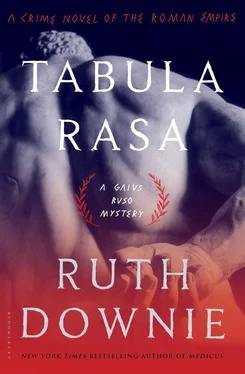


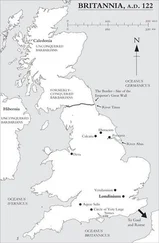
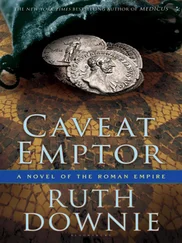
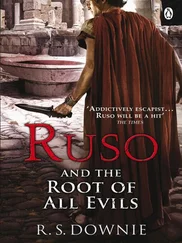

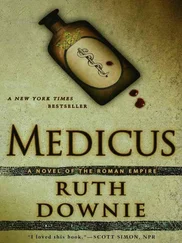
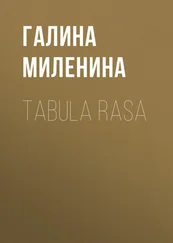
![Антон Архангельский - Tabula Rasa - Исходная точка [калибрятина]](/books/392380/anton-arhangelskij-tabula-rasa-ishodnaya-tochka-k-thumb.webp)


